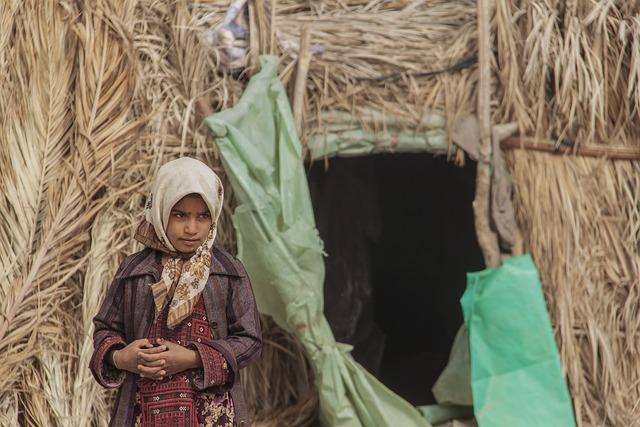In recent developments, Balochistan has implemented stringent night travel restrictions in response to escalating security concerns that have engulfed the region. This decision, announced by local authorities, comes amidst a backdrop of increased violence and threats to public safety, prompting officials to prioritize the security of residents and travelers alike. as one of Pakistan’s largest yet least developed provinces, Balochistan’s geopolitical meaning frequently enough places it at the center of socio-political tensions. This article delves into the implications of the new travel restrictions, examining the rationale behind the move, its potential impact on tourism and local communities, and the broader questions of safety and governance in a region long grappling with instability.
Balochistan Implements Night Travel Restrictions to Enhance Public Safety
In a decisive move aimed at bolstering public safety amid escalating security challenges, the government of Balochistan has implemented new restrictions on night travel. These measures are viewed as a proactive response to the rising concerns regarding crime and violence during late hours. Authorities believe that by limiting travel during nighttime, they can reduce potential threats to individuals and enhance the overall safety of residents and travelers alike. The decision has been met with mixed reactions, as some citizens express support for improved security, while others voice their grievances over the constraints imposed on mobility.
As part of this initiative, specific guidelines have been established for travelers and transport companies. Key points of the restrictions include:
- travel Ban: All non-essential travel is prohibited after 10 PM.
- Exceptions: Emergency services, medical transports, and authorized personnel are exempt from these restrictions.
- checkpoints: Increased police presence at major intersections to enforce compliance and ensure passenger safety.
The government is optimistic that these night travel restrictions will mitigate risks and foster a safer habitat for all.Ongoing evaluations will be conducted to assess the effectiveness of the policy, with updates expected to be announced regularly as the situation evolves.
Assessing the Impact of Security Measures on Tourism and Local Economy
The recent enforcement of night travel restrictions in balochistan due to heightened security concerns has sparked a complex discussion regarding the implications for tourism and the local economy. Local businesses that depend on tourist footfall may feel the immediate impact, as visitors frequently enough schedule their activities around flexible travel hours, which may now be curtailed. This shift could lead to a reduction in the number of tourists choosing to visit Balochistan, as the constraints may make travel less appealing and more cumbersome. Consequently, the potential decline in visitor numbers could exacerbate existing challenges for local artisans, hospitality providers, and logistical services that thrive during peak travel seasons.
On the flip side, enhancing security measures through these restrictions can instill a sense of safety for both residents and visitors during the daytime. This improved safety perception could encourage longer-term tourism investments and infrastructure progress, ultimately enhancing the region’s appeal. Key stakeholders, including government officials, local businesses, and tourism associations, must work together to communicate the importance of security while finding innovative ways to promote tourism. Initiatives could include:
- Enhanced daytime travel promotions to encourage exploration of the region’s offerings.
- Safety awareness campaigns targeting potential tourists to reassure them about their well-being.
- Community engagement programs that involve locals in tourism planning to meet safety demands while promoting local culture.
Expert Recommendations for Travelers to Navigate New Regulations efficiently
As travelers navigate through Balochistan amidst the newly enforced night travel restrictions, adherence to local guidelines becomes crucial. To ensure a smooth journey, it is recommended that visitors stay updated with the latest data through official government channels and local news outlets. Essential practices to follow include:
- Planning ahead: schedule trips during daylight hours to avoid any disruptions.
- Staying Informed: Regularly check for real-time updates regarding security and travel advisories.
- Local Liaison: Collaborate with local contacts who can provide insights into current conditions and regulations.
travelers should also familiarize themselves with key contact points in case of emergencies or unexpected changes. The table below provides a swift reference for critically important contacts to keep handy while traveling in Balochistan:
| Contact Type | Contact Information |
|---|---|
| Local Authorities | police: 15 |
| Emergency Services | Ambulance: 1122 |
| Travel Assistance | Local Tourism Office: [insert local number] |
By following these recommendations and staying engaged with local updates, travelers can enhance their safety and optimize their experiance in Balochistan despite the constraints of new travel regulations.
Insights and Conclusions
the recent implementation of night travel restrictions in Balochistan underscores the government’s heightened focus on ensuring public safety amidst escalating security challenges. As authorities prioritize the protection of both residents and visitors in the region, these measures reflect a commitment to address the ongoing concerns surrounding safety and stability.Travelers planning to explore Balochistan should stay informed about current regulations and local advisories to navigate the region responsibly. While the restrictions may impact travel plans, they also serve as a reminder of the importance of vigilance and preparedness in areas facing security issues. As Balochistan continues to grapple with these complexities, stakeholders from both the government and the tourism sector must work collaboratively to foster a safe and welcoming environment for all.
